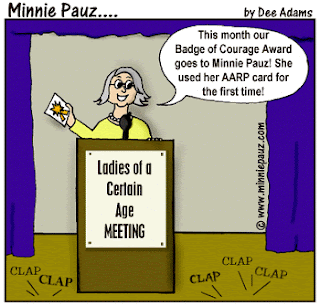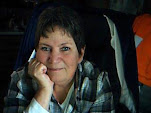 It's getting very complicated out there when it comes to finding the right products for a variety of health issues from things as serious as depression to just cold medicines. For menopause supplements it's REALLY getting hard! There are HUNDREDS, if not thousands, of products that make claims from "help relieve symptoms" to "cure your menopause". Some really do help and everyone just has to experiment to find what works for them, but Ladies, there is NO CURE for menopause! That's one reason I came up with the phrase "Menopause is not a disease, it's a LIFESTYLE"™
It's getting very complicated out there when it comes to finding the right products for a variety of health issues from things as serious as depression to just cold medicines. For menopause supplements it's REALLY getting hard! There are HUNDREDS, if not thousands, of products that make claims from "help relieve symptoms" to "cure your menopause". Some really do help and everyone just has to experiment to find what works for them, but Ladies, there is NO CURE for menopause! That's one reason I came up with the phrase "Menopause is not a disease, it's a LIFESTYLE"™Here's a good example. I've been taking St. John's Wort for many years, not on a daily basis, just when I noticed that I was feeling down too often. I usually felt kind of a lift of spirits within 3-4 days and would then stop taking it. You must be careful if you're taking other medications because SJW can interact with them! SJW interacts with many medications because one of the main active ingredients (Hyperforin) is a potent inducer of the P glycoprotein enzyme, which is involved in metabolizing about 50% of the drugs on the market. This leads to medicines being metabolized by the body more quickly, decreased serum levels of these medications and reduced efficacy."
Then I read this: "According to the research, only St. John's Wort extracts that are standardized to contain 3-5% hyperforin effectively relieve depression, so don’t settle for products that aren’t standardized for hyperforin or standardize only for another, less important compound called hypericin. Also, keep in mind that St. John's Wort usually requires at least three weeks to begin working, and may not produce its full effects for a month or two."
 When I looked at my bottle of SJW, I saw that it is standardized for hypericin, not hyperforin. Here's more info to explain this: Not all St. John's Wort (Hypericum perforatum) products are created equal. Unfortunately, most of the brands found on the shelves of your local vitamin shop or health food market will do nothing to help depression or anxiety. Why? Because few products sold in the United States contain a standardized amount of the active ingredient, hyperforin. (Carefully examine products that claim to be "standardized", because most standardize for only hypericin, an inactive ingredient!)
When I looked at my bottle of SJW, I saw that it is standardized for hypericin, not hyperforin. Here's more info to explain this: Not all St. John's Wort (Hypericum perforatum) products are created equal. Unfortunately, most of the brands found on the shelves of your local vitamin shop or health food market will do nothing to help depression or anxiety. Why? Because few products sold in the United States contain a standardized amount of the active ingredient, hyperforin. (Carefully examine products that claim to be "standardized", because most standardize for only hypericin, an inactive ingredient!)Recent research shows that only St. John's Wort extracts standardized to contain high concentrations of hyperforin relieve depression and anxiety. Extracts not containing significant levels of hyperforin, even when standardized for hypericin and manufactured using accepted methods, work no better than placebo. I've written to Sundown and hope they will respond with an explanation about why their SJW uses an inactive ingredient. I'm sure they will and I still trust their name as much as any of them (not saying how much that is though). I just bought a new product yesterday--Apple Cider Vinegar tablets--made by Sundown. I'll definitely post their response here when I get it.
Now I'm out on the search for OTHER products that need some research! You all can help me out here if you have found something that doesn't do what it's supposed to do or have the stuff it's supposed to have. Just make sure you back it up with your research, ok?

